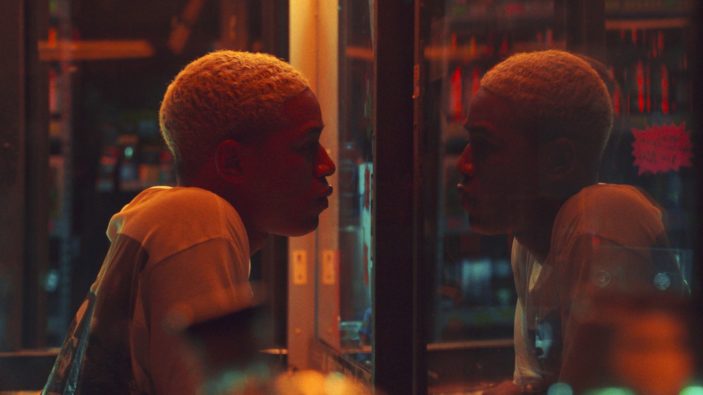
Despite this year’s Oscars honouring one of 2019’s more diverse offerings (Bong Joon-ho’s Korean black comedy/thriller Parasite), the whitewashing of the event was overwhelming. In a cinematic year where actors of colour delivered universally-praised performances (see Lupita Nyong’o in Us, Awkwafina in The Farewell, and Jennifer Lopez in Hustlers, for a start), it was disappointing that more weren’t honoured, and had the Academy really wanted to quell the negative press they should have looked no further than Waves.
A film of two distinct halves, but one that has a uniform narrative pertaining to the individual reactions of how children respond to their parents’ guidance, Waves is both a stirring and sobering experience, a film that tests your nerves before calming them exponentially. The initial focus of Trey Edward Shults‘s film is on high-school senior Tyler (Kelvin Harrison Jr., a Best Actor contender if ever there was one), seemingly the archetype for teenage perfection. He appears bright, has a loving, stable relationship with his girlfriend (Alexa Demie‘s Alexis), and is one of the star athletes on his school’s wrestling team.
Despite all this, his home life runs parallel to that perfection, with his hot-headed, overbearing father (Sterling K. Brown) constantly pushing him to his limits; the duo work out together in a manner that appears more competitive rather than collaborative. The pressure Tyler has evidently placed on himself in his bid to impress his father ultimately comes to a head when he suffers a career-ending injury and opts to keep it a secret, undoubtedly in a bid to to avoid the disappointment he’ll earn from his father. As he abuses pain medication, Tyler quite drastically starts to spiral out of control, and when he learns potentially life-altering news from his girlfriend, too much pressure has been violently released, culminating in a mid-film moment that shocks both the characters and us as an audience to the core.
In the minutes following, Waves gradually shifts its tone (as well as its aspect ratio) to focus on Tyler’s younger sister Emily (Taylor Russell) as she navigates an existence in the aftermath of the judgemental system that comes with high-school toxicity. Angry at her brother for his actions, hoping to reconnect with both her tempestuous father and emotionally broken mother (Hamilton‘s Renee Elise Goldsberry), and discovering her own sense of self through fellow student Luke (Lucas Hedges), a former teammate of Tyler’s, Emily’s story is one equally as complex as her brother’s but is bathed in a more calming presence.
Given just how much Shults’s script covers over the course of the film’s 135 minute running time – ambition, abuse, sexuality, responsibility, love, loss – it’s a testament to his skills as a storyteller that the film never comes undone. The zeal in presenting the film in its two specific halves is similarly a strategy that could’ve hurt the film, but the honesty and imperfection detailed throughout keeps Waves a uniformly human story.
As a showcase for its performers (Russell and Harrison Jr are devastatingly stellar) it’s brilliant. As a film for parents, it’ll likely be terrifying viewing, and for teenagers, even more so. But it’s crucial storytelling, a product so heartbreaking that you won’t want to turn away whilst it has you ensnared but ironically won’t feel the need to revisit, for as masterly as it is, it’s too devastating a gut-punch.
![]()
![]()
![]()
![]()
![]()
FOUR AND A HALF STARS (OUT OF FIVE)
Waves is screening in select Australian theatres now
